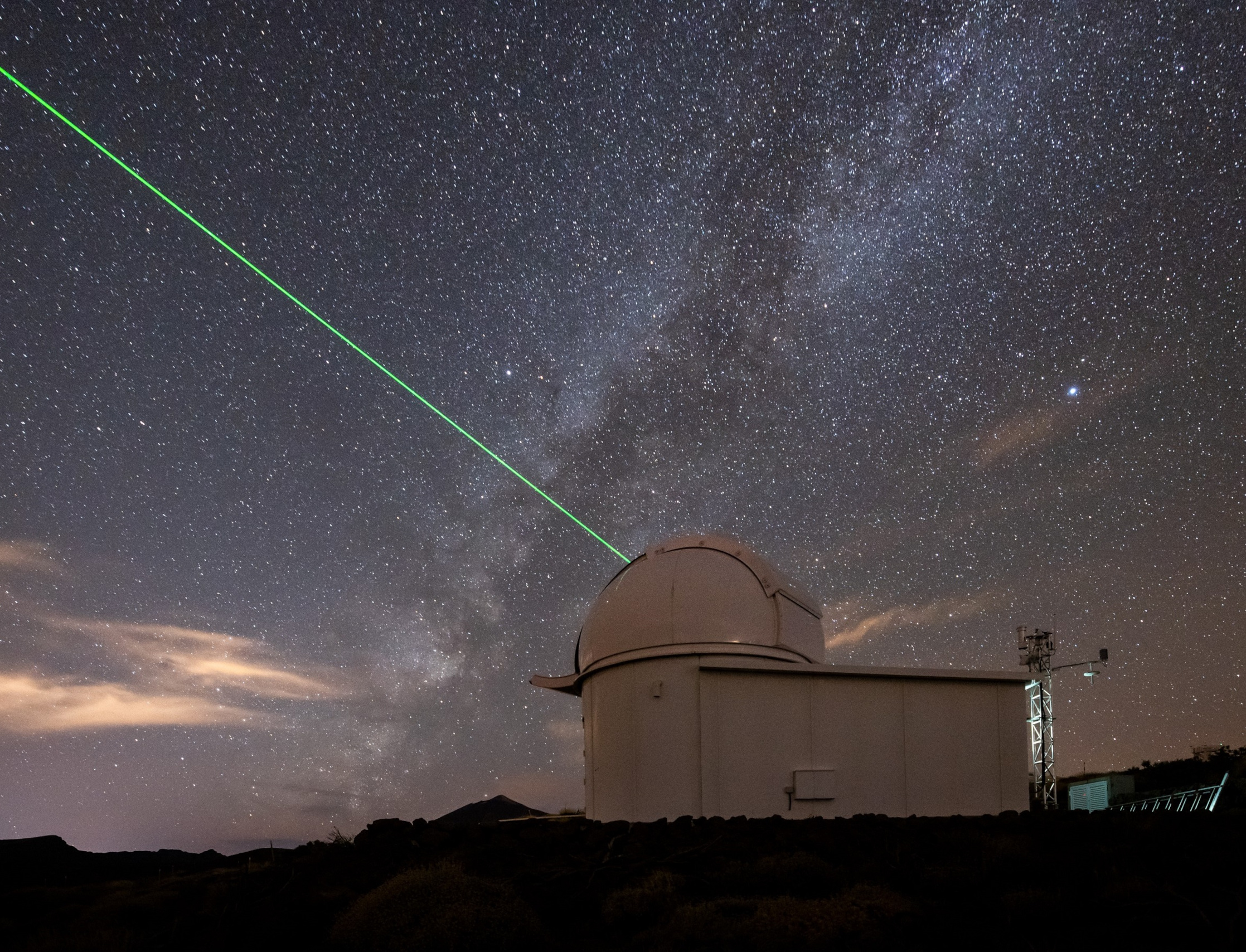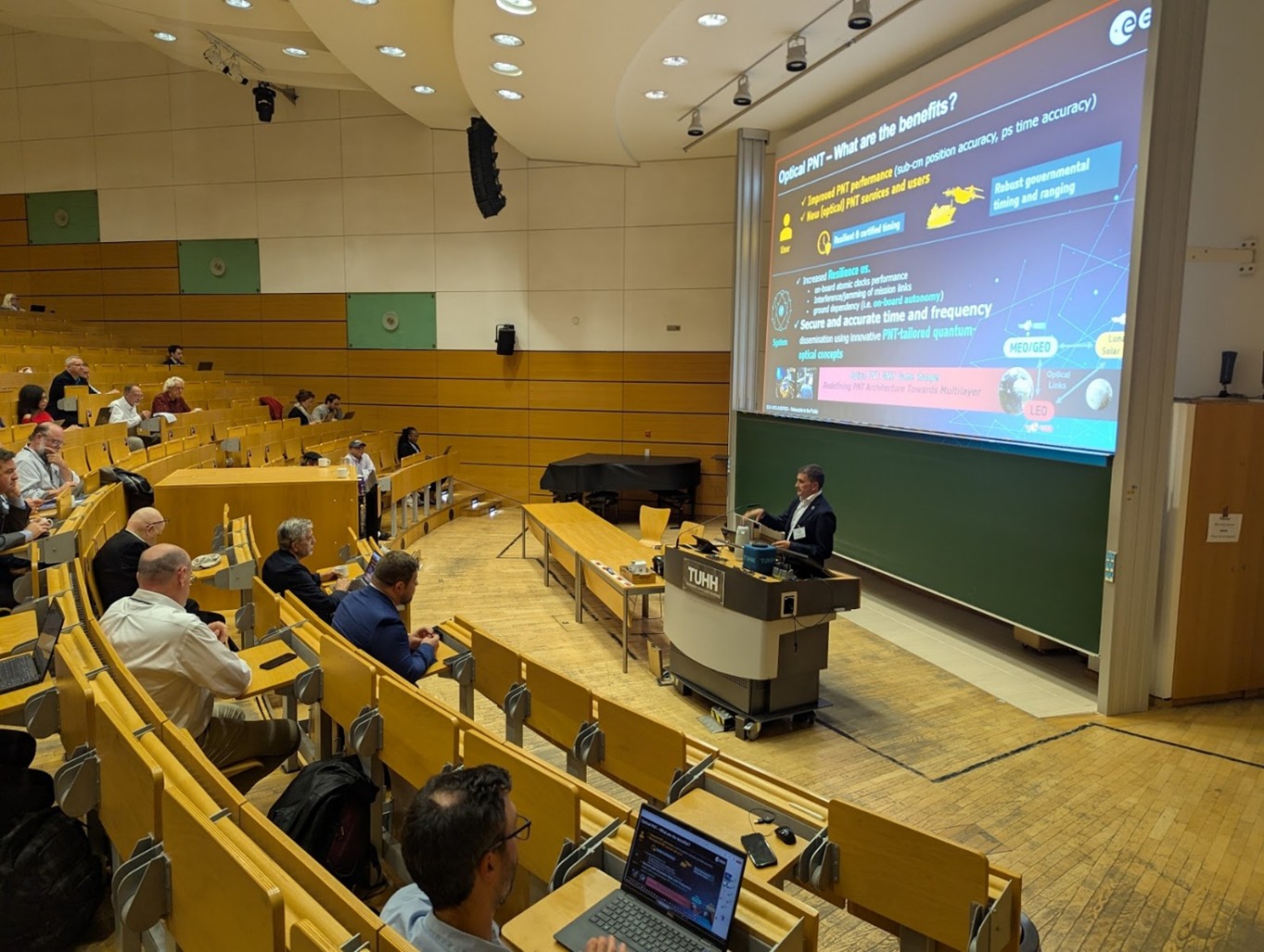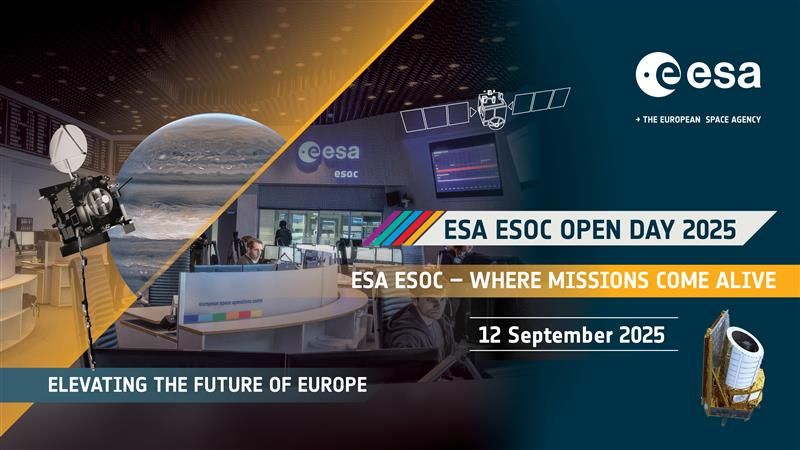Zero Debris Future Symposium - Key Takeaways
On 4 April, 80 high-level decision-makers from the government, industry, academia and non-profit sectors gathered at a Symposium at ESA’s European Space Operations Centre to mark the beginning of intense collective efforts towards a Zero Debris future by 2030.
The symposium, jointly organised by ESA and the European Centre for Space Law, was part of an ongoing engagement process with the growing Zero Debris Community before its formal establishment during the signing ceremony of the Zero Debris Charter to be held in May 2024.
The Zero Debris Charter is a community-driven and community-building document and initiative for the global space community. Written by more than 40 space actors following an open and collaborative process facilitated by ESA’s ‘Protection of Space Assets’ Accelerator, the Charter contains both high-level guiding principles and specific, jointly defined targets to get to Zero Debris by 2030.
The symposium confirmed the kick-starter role of the Charter for collective action, stressing the need for action to avoid disaster and unrecoverable losses in the space sector caused by space debris. The collaborative efforts will facilitate the sharing of knowledge and experience as well as create a market and economic opportunities.
“We need priorities. The priority must be a Zero Debris approach. If we do nothing, there will soon be a collision-domino in LEO, a catastrophe. That’s it. No more space business, we all can close our companies, game over.”
– Ernst Pfeiffer, CEO HPS GmbH and Spokesman German Space SME Association AKRK
Outcomes of the Zero Debris Future Symposium
Outcomes of the symposium highlight several major themes, in particular the Zero Debris Charter’s enabling economic progress, international cooperation, technology development, education, awareness and regulations.
The key takeaways from the Symposium, consolidated with the support of European Space Policy Institute, are as follows:
- In-orbit servicing and space traffic management emerged as the key growth sectors underpinned by the implementation of the Charter. Fostering technology development and greater alignment of national rules and best practices was underlined as major outstanding task facing the growing Zero Debris Community. In an effort to identify further tools beyond regulations to enable such environment, technical standards and solutions, together with public funding and private investment were underscored.
“Promoting sustainability and regulation in the space sector does not necessarily conflict with economic growth and competitiveness.”
– Tanja Masson-Zwaan, Asst. Professor and Deputy Director of the International
Institute of Air and Space Law, Leiden University
- The need for additional funding mechanisms and access to financial support in Europe, particularly when it comes to Zero Debris was highlighted, urging Europe to continue to promote sustainability, the economy, and competitiveness. Zero Debris was identified as a stimulus to the economy which, through increased sustainable approaches, will provide greater commercial opportunities and, of greater importance, enable the continuation of wealth on every region on Earth.
- Cooperation stood as the one of the primary ingredients for ensuring the acceptance and promotion of the Charter. By bringing together a diverse community of actors from industry, academia, and policy institutions, among others, the Zero Debris initiative will shape the coordination of space activities and encourage greater alignment of processes and operations. In this regard, the Charter will promote a collective path towards a safe and sustainable future for space.
“Cooperation is of essence, and the Charter is a way to show
commitment and cooperation on a voluntary basis.”
– Luca Briganti, Head of Sustainability R&T, Airbus Defence and Space
- There is an abundance of new research in academia prompted by increasing investments. Europe needs to harness these innovations. The importance of investment in universities in Europe also lies in the creation of a strong pool of talent.
- It was recognised that the success of the initiative will be enhanced by promoting the risks of space debris to the general public as well as sharing the instruments in place to overcome it, such as the Zero Debris Charter. The need for clear communication from high level stakeholders about the issue of space debris was stressed during the Symposium. Europe as a whole needs to continue to lead this effort, extending it beyond the space sector.
- The Charter is a stepping stone to enable further policy developments towards Zero Debris. It was stressed that future regulations should not be considered a hindrance to commercial drive and innovation and that there is a need for these regulations to be based on extensive exchanges with industry. A strong emphasis was given to incentives and legal certainty for initiatives in the field.
- The research and development of technologies and innovative products in Europe was recognised as indispensable input for regulators to determine what is feasible technically. Research should be promoted to influence and shape the regulations of the future.
The policy, technological and economical dimensions together will facilitate the building of a supranational consensus, and align the rules and norms for Zero Debris efforts.
The Charter brings together a diverse set of stakeholders towards an ambitious vision, with the potential to inform international rulemaking and facilitate convergence. We are only at the beginning on the road to our shared vision, connecting our community in a continuous process.
“Europe leads the world in the sustainable use of space.”
– Josef Aschbacher, Director General, ESA



